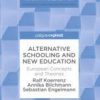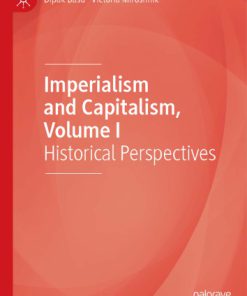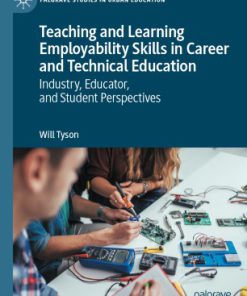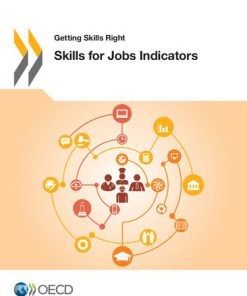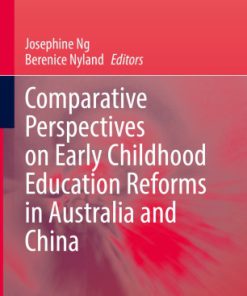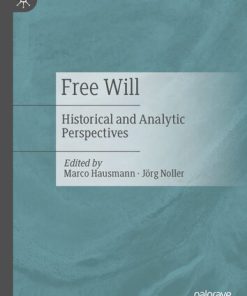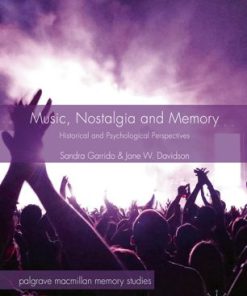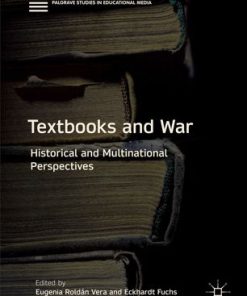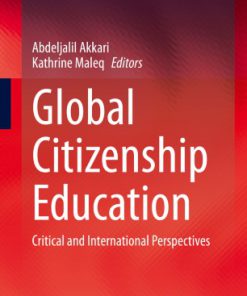Education Skills and International Cooperation Comparative and Historical Perspectives 1st edition by Kenneth King 3030297896 9783030297893
$50.00 Original price was: $50.00.$25.00Current price is: $25.00.
Education Skills and International Cooperation Comparative and Historical Perspectives 1st edition by Kenneth King – Ebook PDF Instant Download/DeliveryISBN: 3030297896, 9783030297893
Full download Education Skills and International Cooperation Comparative and Historical Perspectives 1st edition after payment.
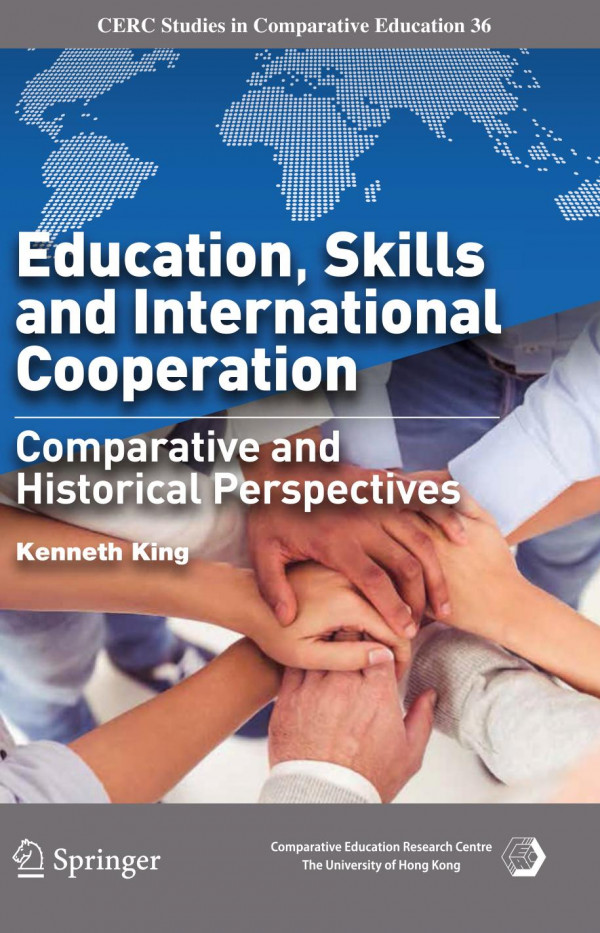
Product details:
ISBN-10 : 3030297896
ISBN-13 : 9783030297893
Author: Kenneth King
This book highlights some of Kenneth King’s diverse contributions to international and comparative education, African studies and development studies over more than four decades. From his pioneering work on the first educational commissions to Africa, through his research on skills training in the informal sector, and on to his critical analysis of education analysis in development agencies, this book makes influential materials available in one place. Appropriately, it illustrates his career-long connections with Kenya, but also his more recent engagement with Japan, China and India. It is the first CERC volume to pay significant attention to the policies and politics of skills development. Kenneth King is an Emeritus Professor of the University of Edinburgh. He was based in and directed its Centre of African Studies for many years, and lectured on international perspectives in education and training in its School of Education. His research interests have addressed the politics and planning of skills development, including in the informal sector of the economy, aid policies towards education of both Western and Asian donors, and higher education cooperation. He founded NORRAG, the network for international policies and cooperation in education and training, in 1986, and edited NORRAG News until 2016. He was President of the British Association for International and Comparative Education (BAICE) from 2014-2016, and was one of the founding members of the UK Forum on International Education and Training (UKFIET).
Education Skills and International Cooperation Comparative and Historical Perspectives 1st Table of contents:
Chapter 1 Context, culture and chance
References
The Phelps-Stokes Commissions and the Politics of Negro Education (1971)
Chapter 2 Skill Acquisition in the Informal Sector
The Span of Informal Sector Activity
Productive Crafts in the Informal Sector
1. Exclusively informal sector products and skills
2. Industries and skills common to formal and informal sectors
Formally
Through casual labour to skilled man
Indigenous skill acquisition
1. Fees.
2. Length of training.
3. The paradox of the open apprenticeship.
4. Character of the trainees.
5. Product technology and urban-rural diffusion.
Policy Conclusions and Definitions
Informal education and training
Technology of improvisation with labour intensity
Informal wage structures, determined by productivity not certification
Informal products and services
Chapter 3 Inter-agency analytic capacity
Development of research capacity in the South
References
Aid, Research and Education
The Scope of Aid-related Educational Research and Evaluation
Sector Assessments as Educational Research
Educational Data in the Agencies and its Availability
Educational Policy Development as Research
Agency Seminars and Expert Meetings as Educational Research
The Inter-agency Dimension of Aid to Education: The Search for Consensus
Summary on the Growth of Institutional Capacity within the Donor Community
The Development of Institutional Research Capacity in the South
The Relative Invisibility of Third World Education Research
Making the Agency World more Visible
Some Pointers to the Improvement of Symmetry
Summary Comments on Research Capacity in the South
Chapter 4 Education and Training for Self-Employment in Kenya
Vocationalisation of basic education for self-employment in Kenya
The Kenyan form of vocational secondary and post-secondary education
Jua kali attitudes to school reforms far self-employment
References
Chapter 5 Exploring the Impact of Primary Education
The ‘farmer education fallacy in development planning’
The Policy Impact of the Farmer Education Research
Education and its Two Enabling Environments
Conclusion on a two-way relationship of education and training with their enabling environments
Further Reading
Chapter 6 The Vocational School Fallacy Revisited
1. The central challenge in the vocational school fallacy (VSF)
2. School data on the vocational school fallacy
3. A national sample for ‘the vocational school fallacy’
4. The aspirations and expectations of secondary school pupils in the late 1990s
5. The new realism: attitudes towards self-employment
6. Occupational rankings
7. Concluding observations and continuing challenges
Acknowledgements
References
Further reading list
Commentary from Philip Foster
Chapter 7 Africa’s Informal Economies: Thirty Years On
The Evolution of the Informal Economy: From an Isolated Artisanal Sector to a National Phenomenon?
The Informalisation of the Formal Sector
Informal Income Generation in the Education Sector
Educating Future Informal Workers
Educational and Societal Influences on Self-Employment
Outstanding Challenges for Africa’s Informal Economies
Avoiding the Dualism of the Formal and Informal Sectors
Racial and Ethnic Tensions
Informal Sector Business Associations
Conclusions
Chapter 8 Re-targeting Schools, Skills and Jobs in Kenya: Quality, Quantity and Outcomes
Introduction
Concerns about education, training and self-employment: The historical context
Quantity, quality and outcomes in the domains of schools, skills and employment
Beyond the numbers’ game: The main challenge of free primary education
Targeting access, achievement and placement in skill development
The ultimate target – productive work
Conclusions on targeting school, skill and work in Kenya
References
Further reading
Chapter 9 Skills and Education for All from Jomtien (1990) to the GMR of 2012: A Policy History
Introduction
From Jomtien to Dakar
Skills within basic education at Jomtien
A word on the emerging locations of skills development
Eliminating skills, early childhood education, adult literacy, and quality in the MDGs
The replacement of ‘essential skills’ by ‘life skills’
The ‘sacred text’ versus the expanded commentary on the Dakar Framework for Action
The Treatment of Skills in the Global Monitoring Reports, 2002-2010
The independent global monitoring reports get underway
1. GMR 2002: the challenge and the promise
2. GMR 2003/4: Engaging with skills and life skills
3. GMR 2005: Literacy and skills development continue to share a bed
4. GMR 2006: Good analysis of why goal 3 has not yet been tackled, but no progress report on skills
5. GMR 2007: from skills and life skills to non-formal education
6. GMR 2008: Not a more systematic assessment of progress in meeting the learning needs of young peo
7. GMR 2009: Skills ‘still stymied by problems of definition and lack of data’ (UNESCO 2008: 91)
8. GMR 2010: Goal 3 and skills development finally recognised
9. GMR 2011: ‘A policy focus on overcoming the marginalisation of low-skill workers in developed c
10. GMR 2012: Skills development: expanding opportunities for marginalised groups
Concluding Comments
References
Chapter 10 From development to knowledge agencies
References
Experience, Experts and Knowledge in Japanese Aid Policy and Practice
Japan’s own experience for development
Cross-ministerial vs. specialist agency experience of development
Experts and generalists in development co-operation
Japan’s multiple external sources of development expertise
Despatch of project-type technical co-operation experts
Despatch of individual experts
Development studies
Basic design studies for general project grant aid
Thematic and country evaluations
Japanese expertise in international perspective
Direct exposure to Japanese experience through overseas training
Conclusions on the expert experience
Sources of policy knowledge in Japanese development assistance
Knowledge-sharing initiatives in a culture of valuing experience
Knowledge via sector work and sector studies
Knowledge via dissemination of evaluation summaries
An early challenge to ‘Knowledge for Development in Japan’
Knowledge management in JICA: A new approach
References
Chapter 11 African Students in China: Changing Characteristics, Contexts and Challenges
Changing attitudes of Chinese and African students?
Kenyans study in China
An early vocational safari with a comparative perspective on Kenya
An early Kenyan female student in China; surprise at China’s ignorance of Africa
Returning from China critical of Kenya
Admiration for China’s culture including its culture of work
Fascination with the Chinese language and culture, plus a desire to teach it in Kenya
Learning Chinese in a changing, enabling environment in Kenya
Switching from OECD countries to China?
Self-sponsored Kenyans studying in English in China
Other African students in China’s universities
Switching from French to Chinese language teaching
Country unions and scholarships in support of African students in China
Egyptians studying Chinese and Chinese studying Arabic: a more equal partnership?
Nigerian students in China: the promise and the challenge
Former President of the General Union of African Students in Tianjin (GUAST) reflects on his experie
From African student to African business in China and Cameroon
A South African student in China
Aid-supported English medium Masters training in China
Issues for further reflection and policy analysis
Contested perceptions on racial discrimination and prejudice
Very powerful positive impacts on attitudes and values at individual and institutional levels?
Exploring impact via associations or unions of African students in China
Exchanges of students or predominantly one-way scholarship flows and targets
Towards a political economy of China’s scholarships or a scholarship policy with Chinese character
References
Chapter 12 The Geopolitics and Meanings of India’s Massive Skills Development Ambitions
1. Origins and traditions of skills training in India and the skills mission
2. The numbers game
3. National Skills Development Policy (NSDP)
4. A National Vocational Qualification (NVQ) for India – going the second mile?
5. Funding for skills development with the private sector
6. Drivers and meanings
7. Concluding reflections
References
Chapter 13 Conclusions around Education, Skills, Knowledge and Work – and the Role of Aid
References
CERC Studies in Comparative Education (ctd)
CERC Monograph Series in Comparative and International Education and Development
Comparative Education Research Centre
People also search for Education Skills and International Cooperation Comparative and Historical Perspectives 1st:
cooperation vs competition in education
international and comparative education
international cooperative education
international cooperation in comparative education
education and international cooperation
Tags: Education Skills, International Cooperation, Historical Perspectives, Kenneth King
You may also like…
Business & Economics - Econometrics
Imperialism And Capitalism, Volume I: Historical Perspectives Dipak Basu
Education Studies & Teaching - School Education & Teaching
Business & Economics - Mathematical Economics
Politics & Philosophy - Sociology
Spectres Of Fascism Historical Theoretical And International Perspectives Samir Gandesha
Education Studies & Teaching - School Education & Teaching
Comparative Perspectives on Early Childhood Education Reforms in Australia and China Josephine Ng
Politics & Philosophy - Anthropology
Free Will: Historical and Analytic Perspectives Marco Hausmann (Editor)
Politics & Philosophy - Anthropology
Music, Nostalgia and Memory: Historical and Psychological Perspectives Sandra Garrido
Politics & Philosophy - Social Sciences
Global Citizenship Education Critical and International Perspectives Abdeljalil Akkari



